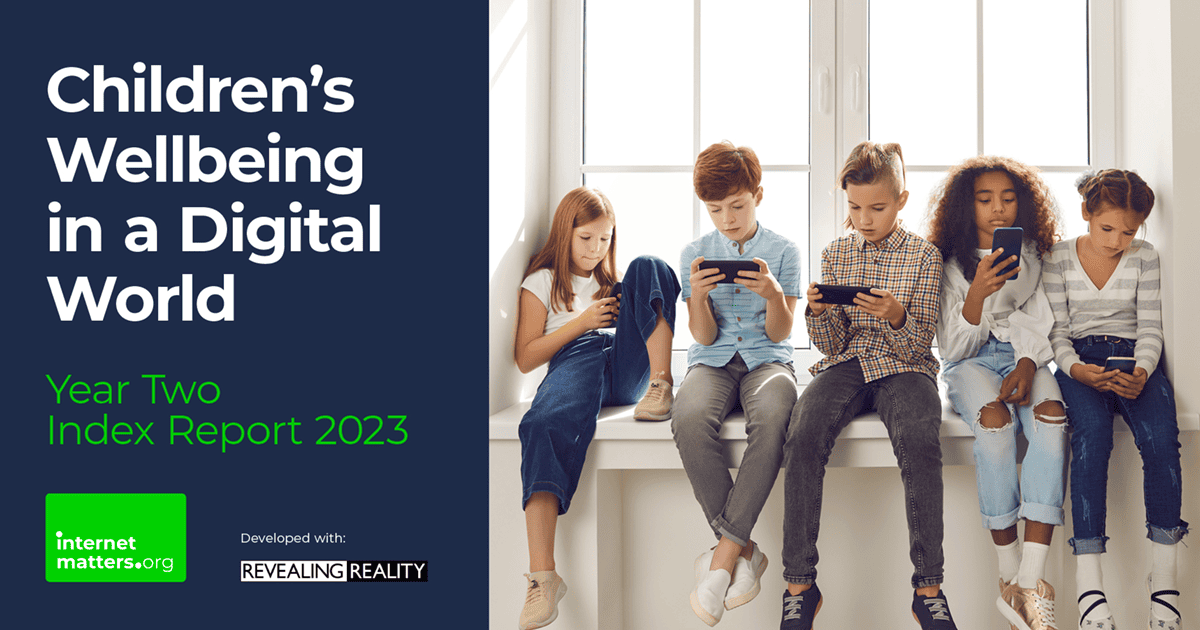Internet Matters today launches the year two report from the first ever Index to track children’s wellbeing in a digital world, which reveals the positive effects of being online has reduced for children aged 9-15 in the space of a year.
Being online has a significant impact on the lives of children and young people, playing a major role in shaping their behaviour and experiences. The Internet Matters ’Children’s Wellbeing in a Digital World Index’ identifies four dimensions of wellbeing (developmental, emotional, physical, and social) which are most impacted by digital participation and considers both the positive and negative outcomes for each.
With research conducted by Revealing Reality, the first ever Index was published in early 2022, with the second annual Index providing comparative data indicating changes and possible emerging trends.
The changes in developmental and social wellbeing seem to indicate a post-Covid trend where technology is facilitating learning and socialising to a lesser degree than it was when pandemic restrictions were in place. As children are now back in school full-time their technology use appears to have been shifted later into the evening, which in turn is impacting their sleep and physical wellbeing.
Younger girls aged 9-10 in particular are experiencing much greater negative impacts on their social and physical wellbeing year on year.
Findings from the Index show that 45% of this age group now say they stay up late on digital devices (compared to 26% last year) and 49% say they repeat watch programmes or play computer games even though they aren’t enjoying them (compared to 34% last year).
The number of 9-10-year-old girls who say they get upset if they miss out on what’s happening with their friends on social media has doubled year on year (from 16% to 32%) and is higher than any of the other age groups.
In terms of body image and self-esteem, one in 10 also say that being online makes them worried about their body shape or size and 13% say it makes them jealous of other people.
This may be a worrying outcome of younger girls becoming more active on messaging and social media platforms, as the age at which children get their first device is ever younger. Internet Matters data shows that 56% of 9–10-year-old girls said they were using social media, with significant numbers also using platforms only intended for children aged 13+ (48% WhatsApp; 41% TikTok; 26% Snapchat; 15% Instagram).






